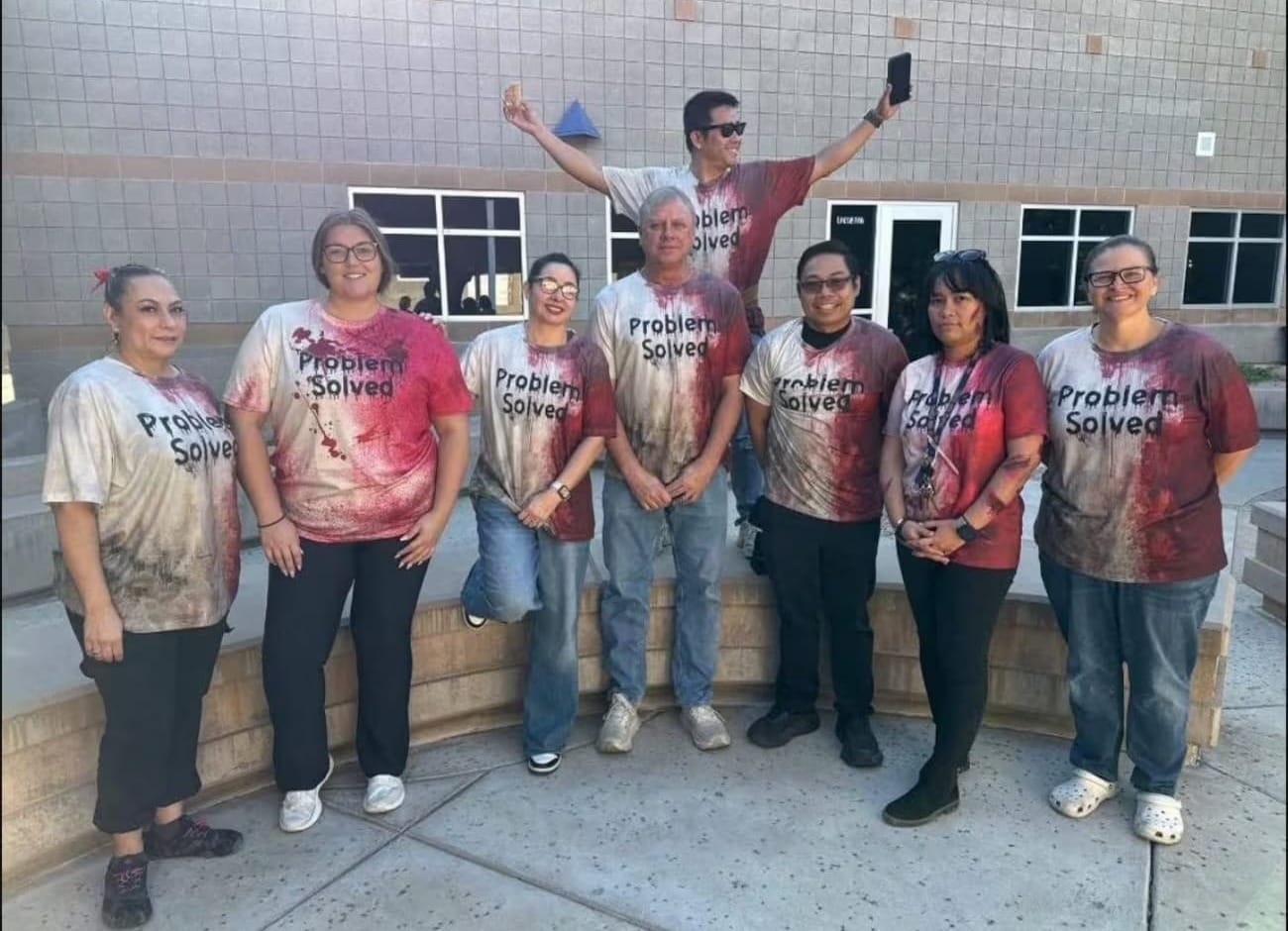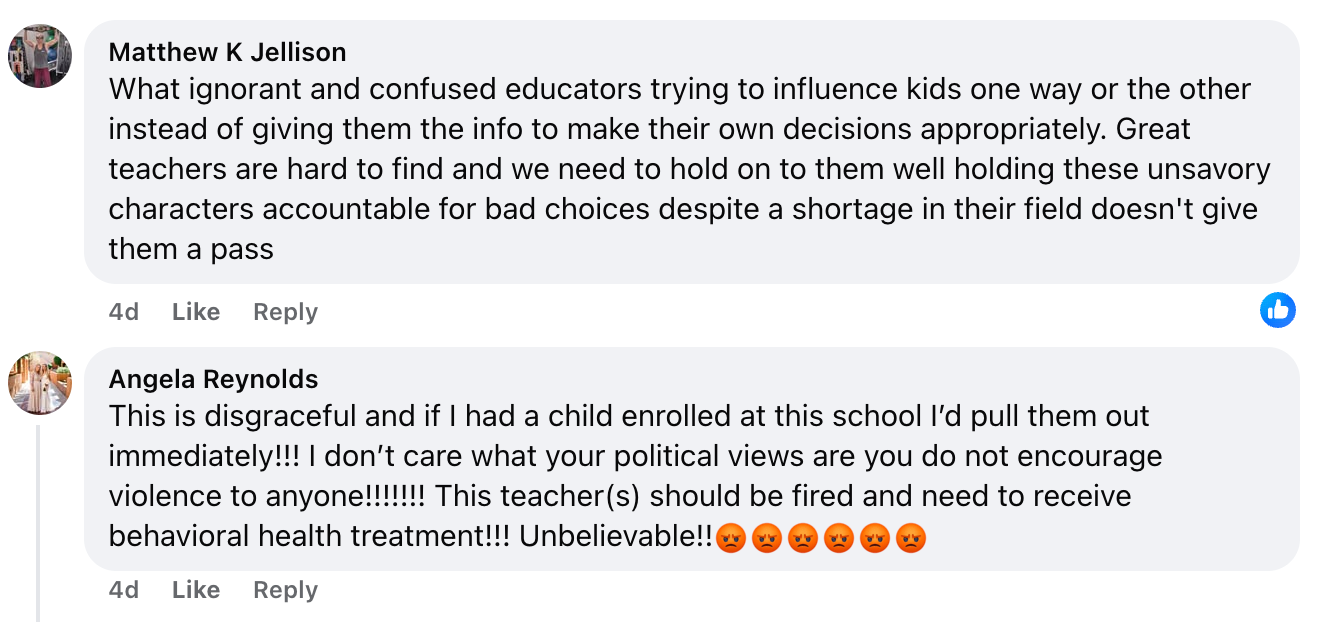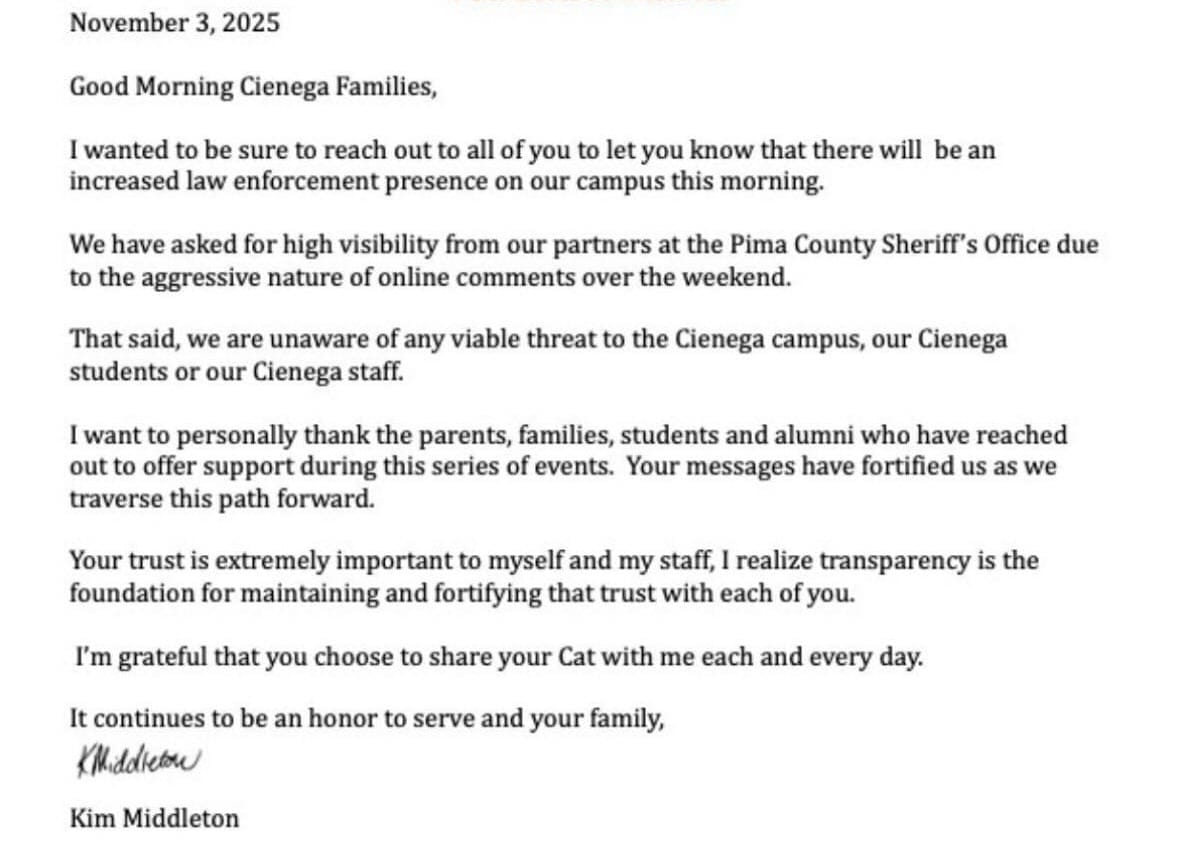Friday, January 30, 2026
Thursday, November 13, 2025
Sinclair Broadcasting Posts Huge Quarterly Loss After Jimmy Kimmel Censorship

You might recall that right wing propaganda broadcaster Sinclair Broadcasting recently tripped over its own ass after working with the Trump administration to try and censor Jimmy Kimmel for criticizing the President. The flood of outrage at the Disney/FCC/ABC collaborative effort ultimately forced the company to retreat and put Kimmel back on the air.
Even after ABC retreated, Sinclair tried to push its luck and extend the “pre-emption,” but ultimately buckled and got absolutely none of what it asked for (including an apology from Kimmel for doing nothing wrong). Now Sinclair Broadcasting’s latest earnings reports indicate that things aren’t going well for the company, which posted a 16 percent quarterly loss.
It’s not clear how much of the loss was due to Kimmel backlash and cancellations, and the company wasn’t willing to talk about it. More annoyingly, none of the “journalists” on the company’s earnings call asked them about one of the biggest moments in the company’s recent history:
“It’s not clear the extent to which the Kimmel boycott affected Sinclair’s financial results for the quarter; the company did not provide any discussion of the blackout in its earnings press release and the topic did not come up on the call with analysts.”
Most companies carefully screen what kind of journalists are allowed on earnings conference calls, and then screen questions ahead of time so executives don’t have to deal with uncomfortable realities like: “it’s not good business to be weird partisan zealots who engage in censorship of comedians because they made a mild joke about your mad, idiot king.”
There’s a lot trending against Sinclair Broadcasting. For one, the public’s appetite for right wing propaganda pretending to be useful local news is dwindling. Broadcast TV continues to see slow declines as users shift to streaming. And Sinclair is dealing with a blackout of its ABC affiliate stations on YouTube TV due to an ongoing retransmission feud between ABC/Disney and Google.
Sinclair Broadcasting’s lobbying helped install Trump sycophant Brendan Carr at the FCC. As we’ve discussed, Carr doesn’t actually believe in things like corporate oversight or healthy market protection, and is actively helping Trump defang what’s left of media and consumer protection oversight. So it was interesting to see Sinclair CEO Chris Ripley beg for regulatory intervention in the dispute:
“On the earnings call, Sinclair president and CEO Chris Ripley noted that Sinclair’s ABC stations are currently affected by the Disney-YouTube TV dispute, which has resulted in a blackout of ABC, as well as ESPN and other networks, on YouTube TV since last Friday. Sinclair has 38 ABC affiliates. He blasted both both Google and Disney for the situation, calling them “media giants,” and said local broadcasters are “caught in the middle” of such disputes — which he labeled an “antitrust issue.”
All out of fresh ideas on how to grow its business organically, Ripley is pushing hard for the Trump administration to destroy whatever is left of media consolidation limits so Sinclair can ultimately merge with Tegna and Nexstar and create one big, shitty, right wing company to dominate whatever is left of U.S. local broadcasting.
They want government handcuffed and completely out of their hair when it’s inconveniently preventing them from harming competition and consumers through consolidation and predatory behavior, but then to step in, competently, when it suits their interests. That generally doesn’t work out well for anybody.
When It Happens
It’s been so long, you sometimes forget that eventually, IT will HAPPEN.
It’s impossible to say when IT will HAPPEN. But it can’t be too long until IT HAPPENS. Looking at the data (age, high-stress job, cardiac history), it is statistically plausible that IT will HAPPEN in the next thirty-six months.
Eighteen, if you factor in hamburger consumption and all the weird bruising.
Of course, it doesn’t feel right to want IT to HAPPEN. And it’s obviously not okay to try to make IT HAPPEN. That’s not what this is ABOUT, just to make things CLEAR LEGALLY as far as VARIOUS AGENCIES are concerned.
But regardless, IT is going to HAPPEN. So you’re allowed to think about IT.
Theoretically, some longevity breakthrough could happen that would enable IT to NEVER HAPPEN. Just the idea is PSYCHOLOGICALLY COMPLICATED. But realistically, IT will HAPPEN. After all, the medical research apparatus will shortly be fully dismantled, unless IT HAPPENS soon.
So, it’s fair to say that IT will happen. But you also prepare for the possibility, even if unlikely, that IT won’t HAPPEN for a long time. Some of you may not last long enough to see IT HAPPEN, which is RICH.
But you imagine where you might be, eventually, when you learn IT has HAPPENED.
Maybe you will wake up, anxious and scared and angry (i.e., normal).
Walk past the armed men and the protesters and the destitute.
Then, out of nowhere, the push notification from THE NEWS: “Breaking: IT Has HAPPENED.”
What will you feel like? When IT HAPPENS?
When IT HAPPENS, it will probably be FEELING. Just a huge, overwhelming sense of FEELING, the kind where you didn’t even realize how starved you were for FEELING. Punctuated with alternating waves of SECOND FEELING, as well as SENSATION.
Plus, a sudden absence of THIRD FEELING, which makes you realize the toll of A CONSTANT BASELINE OF LOW-GRADE THIRD FEELING for ten goddamn TIME PERIODS straight, even though you were still plenty aware of THIRD FEELING, trust me.
How might IT HAPPEN?
It may be morbid, but as it happens, there are many ways IT could HAPPEN.
Heart attack.
Golfing mishap.
An especially frightening NEWS SEGMENT on COASTAL CITY, which is generally not a statistically likely cause of IT HAPPENING, but is not out of the question, in THIS SPECIFIC CASE.
You may consider other WAYS IT might HAPPEN, especially when you are overwhelmed with THIRD FEELING.
You might then feel EMOTION, but don’t beat yourself up.
You wonder how THEY will react. When IT HAPPENS. It will probably be a complete SITUATION. It will be hard not to feel some amount of perverse SENSATION, watching THEIR POLITICAL FORTUNES.
And of course, you will have to tread carefully around RELATIVES, who will probably throw an absolute REACTION when IT HAPPENS. But WE can be MAGNANIMOUS in this new, post–IT HAPPENING world.
Still, you wonder what you’ll do, right after IT HAPPENS. Perhaps you will clutch your loved ones and watch TV, as the news anchors ACT APPROPRIATELY.
Perhaps you will SCREAM, out of OTHER FEELING.
Perhaps you will pop open a SPECIFIC BEVERAGE.
Perhaps you will scroll post after post.
Posts of INCREDULITY.
Posts of ANALYSIS OF WHAT COMES NEXT, WHICH CAN WAIT.
Posts of JOKES THAT EVEN YOU WOULD FIND TO BE IN POOR TASTE, NORMALLY, BUT NOT IN THIS CASE.
Posts SCOLDING THE PREVIOUS POSTS, AND POSTS REPLYING “WHATEVER MAN.”
Posts ABOUT OTHER TOPICS, AND IT’S LIKE, DON’T THEY KNOW IT HAPPENED?
Perhaps you will think of the countless people whose lives might have been DIFFERENT, if IT had HAPPENED sooner.
The important thing to remember, though, is that IT will HAPPEN.
Sunday, November 9, 2025
1-year-old, pepper sprayed by federal agent in Cicero: 'My daughter didn't have to go through this'
A Berwyn family was driving with their 1-year-old child Saturday when they were pepper-sprayed by federal agents, a video taken by the family shows.
At a news conference Sunday in Ald. Michael Rodriguez’s (12th) office, Rafael Veraza said his family were on their way to buy groceries at a Cicero Sam's Club when they heard whistles and sirens.
Veraza attempted to leave the Sam's Club parking lot when a federal agent drove alongside the line of cars exiting, spraying chemical irritants through open windows and striking occupants — including Veraza's 1-year-old daughter, Ariana.
“I didn't have to go through this, and my daughter didn't have to go through this,” Veraza said. “We aren't protesters, we weren't going after them, we weren't attacking them.”
Veraza said his family is considering legal action to help pay for specialist care that he said his daughter now requires.
The video, filmed by Veraza's wife in the passenger seat, shows a masked federal agent driving a black pickup truck and firing pepper spray into the open driver’s window of a vehicle. The video later shows his daughter, whose face is censored, crying as someone says, “You’re OK, Mama, you’re OK” and people wash out their eyes.
The Department of Homeland Security would not comment on the specific incident, instead sending a similar statement to one it sent the day before in response to inquiries about its blitz in Little Village on Saturday — where shots were allegedly fired at agents, according to the agency, and multiple people were arrested after residents responded to agents detaining people.
The agency would not answer questions about whether the action violated CBP use-of-force policy — which states that agents “should not use [pepper spray], and consider other force options" on small children, visibly pregnant people and "operators of motor vehicles" — or a Thursday preliminary injunction from U.S. District Judge Sara Ellis restricting the use of “riot control weapons” against protesters or observers who pose no immediate threat, and without two warnings, among other restrictions.
Ellis said the Justice Department’s arguments against a lawsuit over the treatment of protesters and journalists “lack credibility,” in part due to U.S. Border Patrol Commander-at-Large Gregory Bovino, who she said “admitted that he lied” about whether a rock hit him before he deployed tear gas in Little Village last month.
“The point is intimidation,” said Rep. Jesús “Chuy” Garcia at the news conference. “The point is to drive home that we should give in, that we should not demand our rights, that we are lesser. ... We are at the forefront of a new fight for civility and civil rights in America."
The incident came amid a weekend blitz on Little Village, Cicero and Oak Park, where a Girl Scouts food drive was halted Saturday after the troop encountered federal agents.
“What I witnessed with my eyes yesterday was state-sponsored terrorism,” said state Sen. Celina Villanueva of the activity in Little Village on Saturday. “They kept going and coming back, and every single time they left destruction and traumatized people in their wake."
Saturday, November 8, 2025
Vail math teachers' Halloween costumes spark outrage, threats

A Halloween costume at Cienega High School sparked outrage after photos of math teachers in blood-stained “Problem Solved” shirts went viral, prompting false rumors, threats and an official response from the Vail Unified School District.
The district posted the photos on social media on Halloween, and a Turning Point USA spokesman speculated that because the blood appeared only on the left side of the shirts, they were mocking the Sept. 10 fatal shooting of conservative commentator Charlie Kirk.
Vail Unified School District Superintendent John Carruth quickly disputed the claims in an email sent to the campus community, writing that the costumes were not intended to be political.
“These shirts were part of a math-themed Halloween costume meant to represent solving tough math problems. The shirts were never intended to target any person, event, or political issue,” Carruth said. “Unfortunately, the image is being shared online with false claims that they were intended as a statement of recent events in our country. This is unequivocally untrue.”
This also wasn’t the first year the math teachers wore the costumes. Last Halloween, the district posted a similar photo on social media of its math teachers wearing the same shirts.
“The shirts were purchased online and were also worn last year as part of the same math-themed costumes, long before recent events,” Carruth said.

Facebook users took to the comments section of the Vail school district's recent posts to express outrage over the situation.
But rumors continued to circulate, and threats to Cienega staff prompted Principal Kim Middleton to request an increased law enforcement presence on campus Monday, Nov. 3, due to aggressive online comments.
Carruth wrote that the rumors were unacceptable and did not represent the spirit of Vail’s schools.
“We are also saddened that our teachers are now receiving hurtful messages and online harassment as a result of this misunderstanding,” Carruth said. “We want to be clear — personal attacks, threats or doxxing are never acceptable and do not reflect the values of our community. All threats are being reported to the police.”
Arizona Education Association President Marisol Garcia also released a statement about the situation, condemning the threats and all forms of political violence.
“In recent days, opponents of public education have exploited the shooting at Utah Valley University to justify threats against the lives and livelihoods of our members,” she said. “We urge all public officials to do the same. Educators cannot teach and students cannot learn under threat of harassment and doxxing.”
Garcia said that teachers already face plenty of hardships in the classroom and called on state officials and lawmakers to stop contributing to them. She pointed to Arizona’s large teacher vacancy, saying she does not want to see it increase.
“We urge school leaders and public officials to avoid actions that could validate or encourage threats against educators,” Garcia said. “School and district leaders must consider the legal and contractual rights of union members and give equal weight to justice and due process.”

Cienega Principal Kim Middleton sent an email to parents Monday, Nov. 3, alerting them to an increased law enforcement presence on campus.
Arizona State Rep. Rachel Keshel took a different position, issuing her own statement demanding that the math teachers be fired.
“I am calling on Superintendent John Carruth to take immediate and decisive action: terminate the employment of every individual involved in creating, wearing or permitting these abhorrent costumes,” Keshel said. “Anything less sends a dangerous message that hate has a home in our classrooms.”
Keshel said her daughter, a recent Cienega graduate, told her no math teachers wore the shirts in 2024. She also said that even if the shirts weren’t directly related to Kirk, they were still violent and should not be worn in a classroom.
Pictures of the Halloween costumes and a public statement by the district have since been deleted from the district’s website and social media, but comment sections on Facebook posts from the week before Halloween are filled with criticism.
Many commenters said that teachers wearing blood-covered shirts in the era of school shootings was inappropriate. Others noted that Cienega does not allow students to wear fake blood, questioning why teachers were permitted to do so.
“The Vail School District remains committed to maintaining safe, supportive school communities where every student and staff member feels respected and valued,” Carruth said in his email to staff.
Emma LaPointe is a journalism, political science and German Studies major at the University of Arizona and Tucson Spotlight intern. Contact her at emma.m.lapointe@gmail.com.
Tucson Spotlight is a community-based newsroom that provides paid opportunities for students and rising journalists in Southern Arizona. Please consider supporting our work with a tax-deductible donation.
US Tsunami Warning System Will Soon Go Dark

NBC News reports:
Nine seismic stations in Alaska are set to go dark this month, leaving tsunami forecasters without important data used to determine whether an earthquake will send a destructive wave barreling toward the West Coast. The stations relied on a federal grant that lapsed last year; this fall, the Trump administration declined to renew it.
Data from the stations helps researchers determine the magnitude and shape of earthquakes along the Alaskan Subduction Zone, a fault that can produce some of the most powerful quakes in the world and put California, Oregon, Washington and Hawaii at risk.
On top of that, NOAA laid off the National Weather Service’s tsunami program manager, Corina Allen, as part of the Trump administration’s firing of probationary workers in February. OAA fired hundreds of workers in February, curtailed weather balloon launches and halted research on the costs of climate and weather disasters, among other cuts.
Read the full article. NOAA is fun by the Commerce Department.
The post US Tsunami Warning System Will Soon Go Dark appeared first on Joe.My.God..

